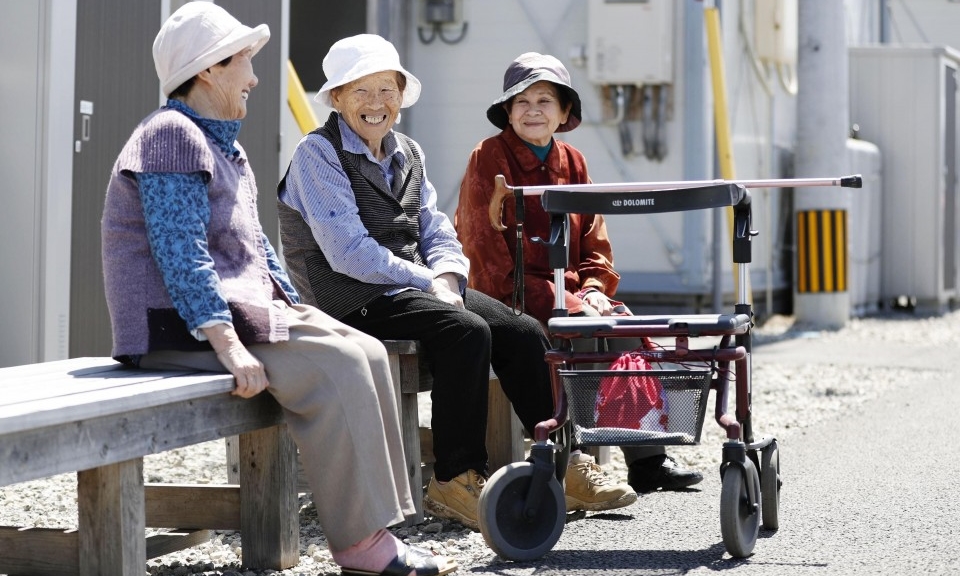The OK Obaachan (Grandma OK) service, launched in Japan in 2011, currently employs around 100 elderly women. Each member possesses strong communication skills, a wealth of life experience, and the physical ability to perform household tasks.
For a fee of around 3,000 yen (over 20 USD) per hour, clients in Japan can hire a woman aged between 60 and 94 to teach them how to cook, help with childcare, mediate family disputes, or even break up with a partner on their behalf, according to SoraNews24.
Some staff are also hired for conversation and counseling in sensitive situations, such as relationship breakups or when a man wants to come out to his parents. Others are brought in to provide societal insights for research projects.
In addition to the hourly rate, clients also pay a 3,000 yen travel fee for the staff.
 |
Elderly women in Kumamoto Prefecture, Japan, 4/2018. Photo: *Kyodo* |
OK Obaachan is run by Client Partners, a company that describes itself as an "all-female generalist company." They specialize in providing services like cleaning, conversation, and other forms of support. Besides the "rent-a-grandma" service, the company also offers services to rent sisters and friends.
The "rent-a-family" service industry in Japan has gained considerable traction in recent years, with various options available, including renting "ossan" (middle-aged men), girlfriends, and boyfriends.
Japan's rapidly aging population presents a serious demographic crisis, particularly with the number of births last year falling to a record low of under 690,000, according to the Ministry of Health.
According to Japanese government data, about 25% of senior citizens in the country are still working. As of 9/2023, the population aged 65 and over in Japan reached a record 36.25 million, accounting for nearly one-third of the total population.
Japan is also facing a cost-of-living crisis. Prolonged inflation makes it increasingly difficult for people to maintain their living standards. The need for additional income is the primary reason why more than half of older workers in Japan choose to continue working. Only 15.8% of them said they worked because they found their jobs interesting or meaningful, according to researcher Yasuo Takao at Curtin University.
Thanh Danh (SoraNews24, SCMP)












